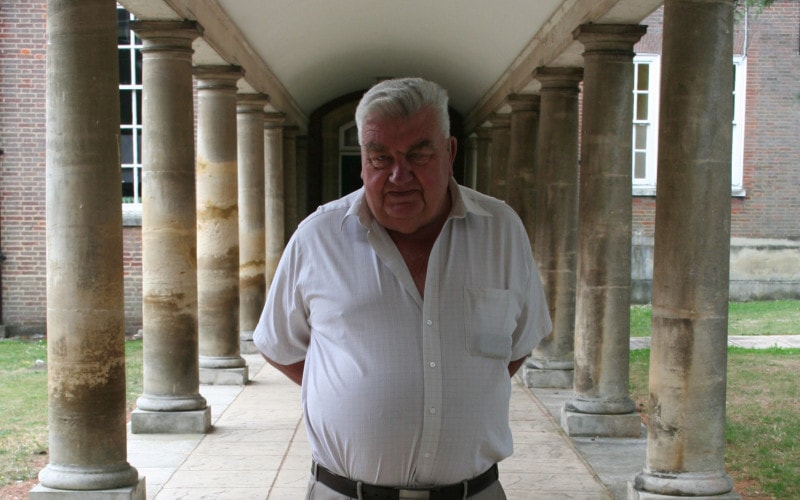Bob was born in Liverpool in 1935, and went to the Foundling Hospital School at Berkhamsted in 1940. Upon leaving the School, Bob entered the catering industry, completed his national service and worked in the civil service. He later worked in administration and book keeping positions. He married and had one daughter.
Early Life
‘They had the house, which was a typical house of the time, but they also had a smallholding attached to the house. So they kept chickens, and pigs… they had an orchard and a walnut tree included. They grew their vegetables, etcetera, and… the Reynolds family consisted of Mr and Mrs Reynolds, and their son, Oliver, and it was Oliver who looked after the smallholding … it was great, just… helping with the smallholding when I could… But we had the run of the area as well, I mean there was no traffic like there is today, because there weren’t cars around, or very few… very few buses, and… we could virtually go where we liked, as long as we told them where we were going and we didn’t go near the river. So we just used to go walking in the fields in the area… help with the harvest… help the men with the harvest, and the ladies would bring out lunches and drinks, fresh lemonade for us, and… beer for the men. And it really was a wonderful time, as far as I was concerned.’
School Life
‘We were all bullied… I know… that… in every residential school in the country, there has always been bullying for… years– year immemorial, really, and it still goes on today. I think the big difference was that we were totally captive at Berkhamsted … say we were in one of the locker rooms, we would be told to sit round the sides, which we were, put our hands on our heads and close our eyes. And… you would sit like that and you would not know when or how you was going to be hit, or how they were going to be hit, or what with, or whatever other sport the lar– bigger boys decided they wanted to get involved in. So you would sit like that all the time and you might get away, not get hit at all… just depended on, entirely on their whims. And after a while they would get fed up with that and then they would pick on… two or three of us and would give them a really rough time of it, but that was… just the way things were. But you couldn’t get away from it.’
Into the World
‘I had got… very involved with the… Evangelical Church of England at Morden …and I decided that I would really like to go into the ministry … so I got in touch with Coram, and they… well, Foundling Ho– Thomas Coram, as it was in those days, and they put me in touch with Delia Ashworth, who used to be the Senior Child Welfare Officer there. So I went and saw her, and we had a long chat about this … she found me accommodation at Oak Hill Theological College in North London, at Cockfosters … and then I got called up to do my National Service … I didn’t do a great deal in my national service. The only thing I did do, and the thing that I really benefited from was it made me realise that at my age, twenty, then, and and my background and upbringing, that there was no way that I could go into the ministry, because I just didn’t have the experience of life or anything about it. I mean, except what I’d learned over the last couple of years, you know. I did go back to college after I left, but then I went and saw the principal and said, “There’s no way I can do this.” And explained why, and he said, “Oh,” he said, “I I I think you could cope, you could manage with this. Let’s– let’s kneel down and pray about this.” So we knelt down and we had our little prayer session, and… you know, “Go away and think about it overnight and pray about it, and it’ll come clear to you what you’ve got to do, and come and see me tomorrow.” So I went and saw him tomorrow, and said, “I’m sorry, but I really do not feel qualified to do this job.”, “Oh, oh, it’d be such a pity if you give up now,” so I said, “It’s not a question of giving up,” I said, “It’s a question of I don’t have the experience of life to do it.” I said, “What– what would I say if somebody comes to me and said, ‘My wife’s just died.’ What am I going to say to him?” So in the end, he agreed that I could pack the course in… which I did.’
Reflections
‘At the end of the day… I can look back and say I’ve no real regrets. Alright, there are things I would have changed, things I would have done differently, if I’d been a bit wiser, and known a bit more. But nevertheless, I’m happy with what I’ve done, and… and I think I’ve helped a few people along the way, one way or another, which always a good thing. And probably upset a good few as well!’



